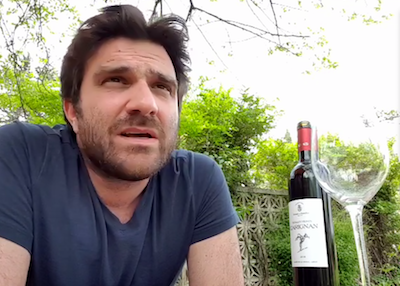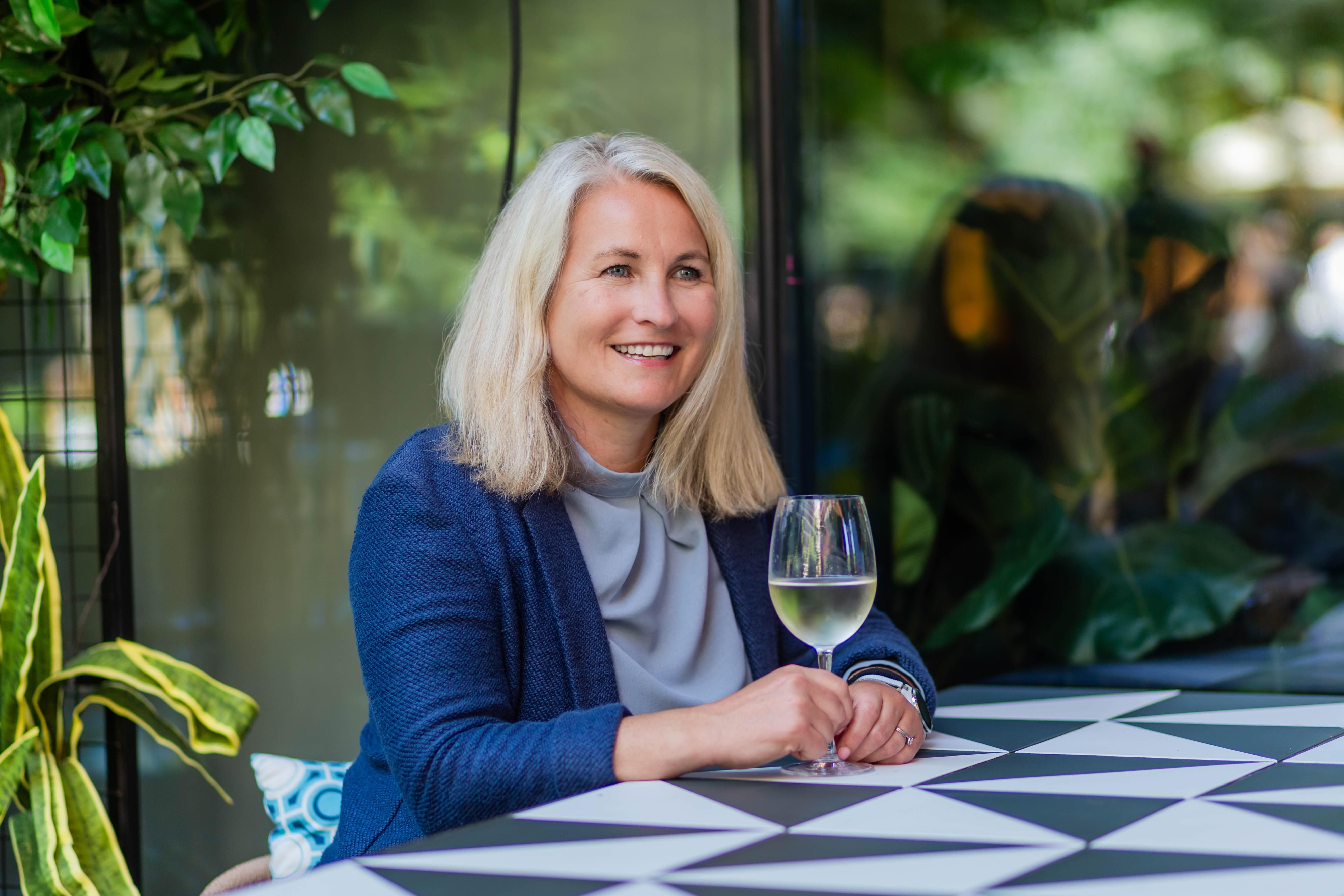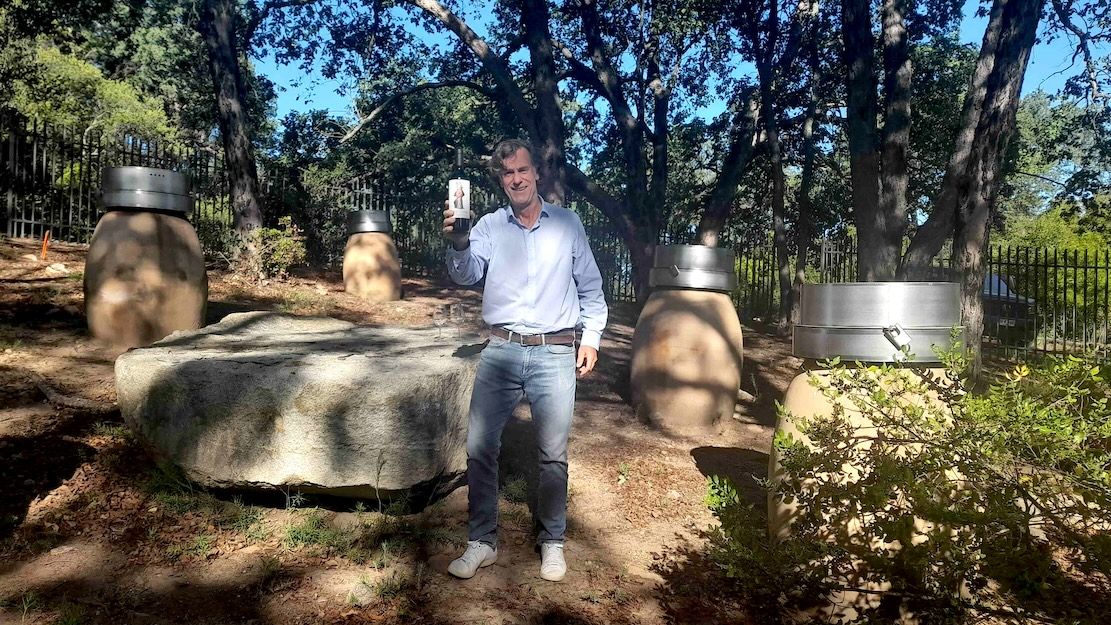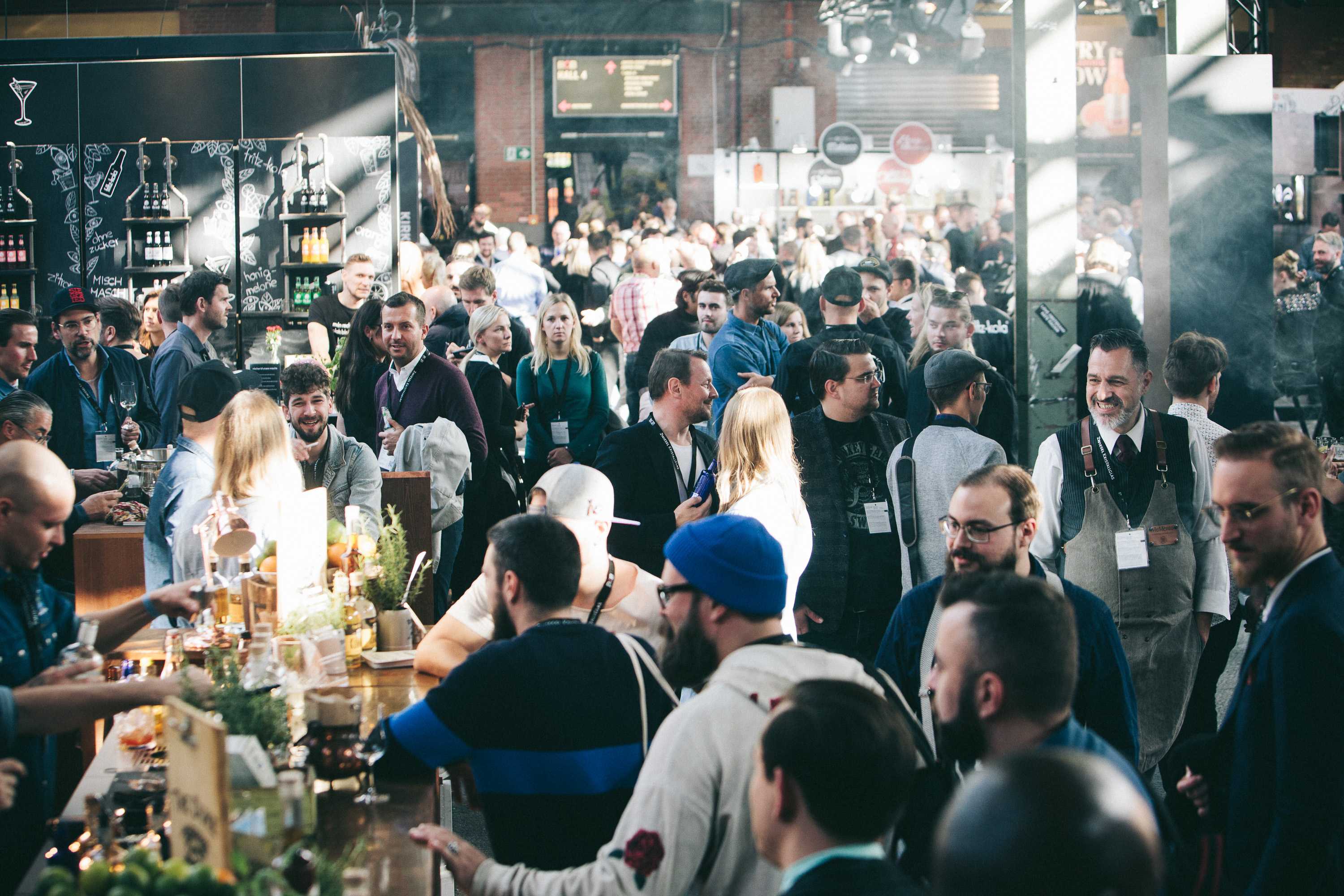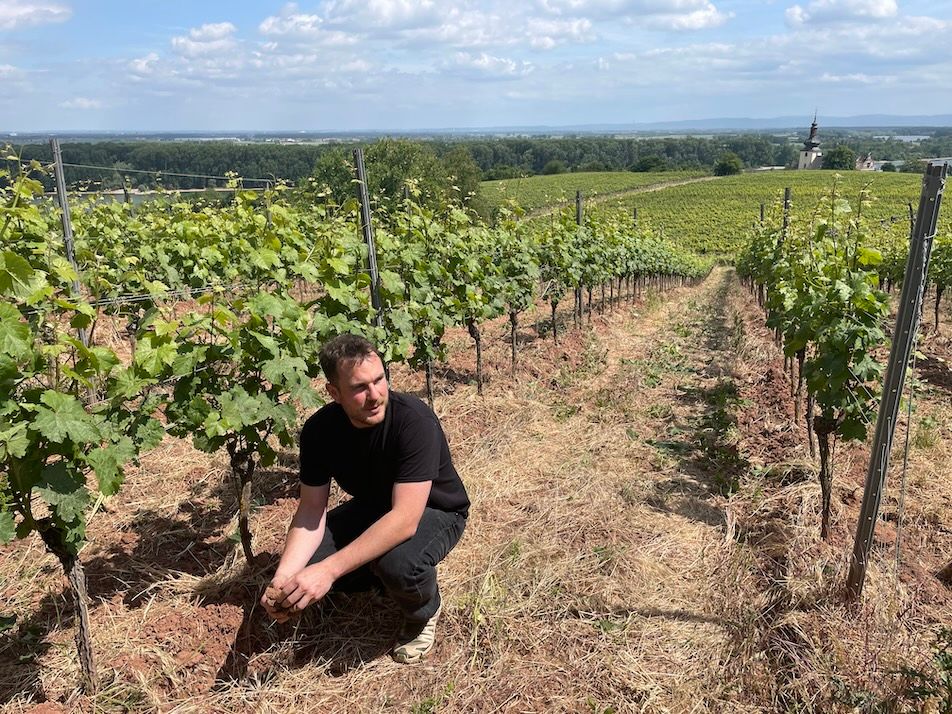“Muslims, religion, Christians, Hezbollah, Saudi, Americans, Trump, Israel all of these things mixed; the food, the generosity, the weather… we have a kind of sexiness in the whole package of Lebanon,” says Issa.
Restaurants in Lebanon are opening this week with 30% capacity as part of a five-part easing of a lockdown that began on March 15. With just 25 fatalities in a country of six million it could be argued that combatting Covid-19 is something that the government has got right – or the only thing that it has got right.
These optimistic figures mask the reality that Lebanon is in dire straits – a grave financial and political crisis. Lockdown has exacerbated the supply of fundamental resources so much so that 75% of its population is slipping beneath the poverty line. Since October last year when the banks stopped lending money and cut off the supply of hard currency the Lebanese lira has been in freefall. Where one US dollar was worth 1,500 lira in October today it is worth 3,200.
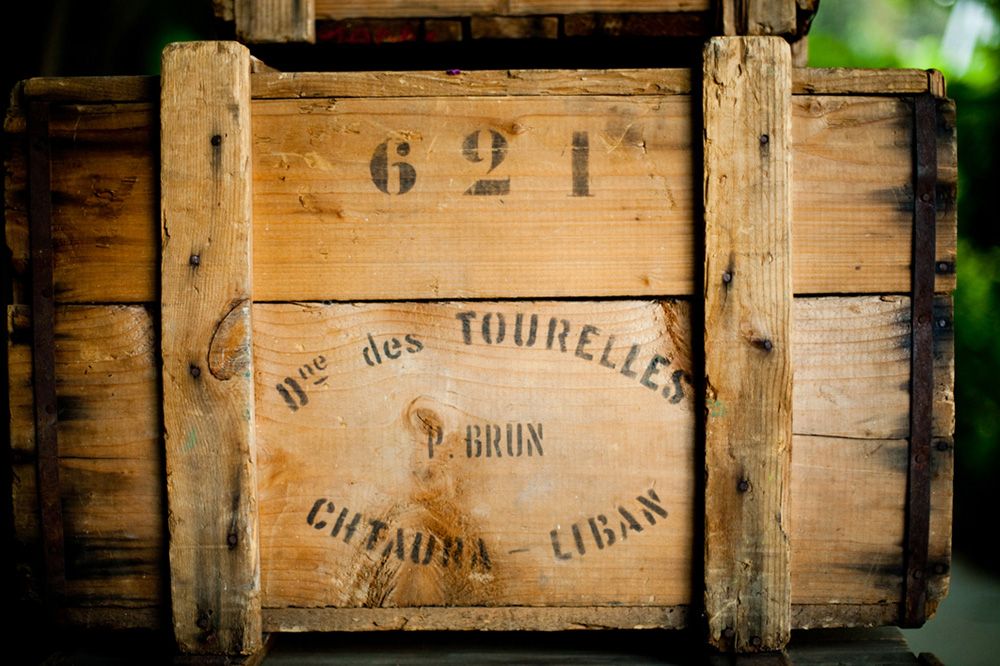
For a winemaker like Faouzi Issa, who runs Domaine des Tourelles, the arrival of Covid-19 was a double whammy.
“Everything is fucked in Lebanon,” Issa says on a video call from Beirut where he lives with his wife and three children, “we are all anxious… restaurants, hotels have been shut for two months, we don’t know what the limits to this virus is.”
“But we were already not in a good place – with the peaceful revolution that was killing the economy in Lebanon. Now we are all saying that there will be a bigger revolution after the coronavirus but it will not be any more peaceful, people are saying there is going to be a bloody revolution,” he adds ominously.
This week’s violent protests in Tripoli are evidence, perhaps, that this has now already started, the harsh reality that is the backdrop for Issa and his 152 year-old winery to carry on making wine. Issa has been here before – his vineyards are in the Bekaa Valley, a 40 minute drive from the capital, where he described the missiles whistling overhead during the last war as “our music for working in the vineyards.”
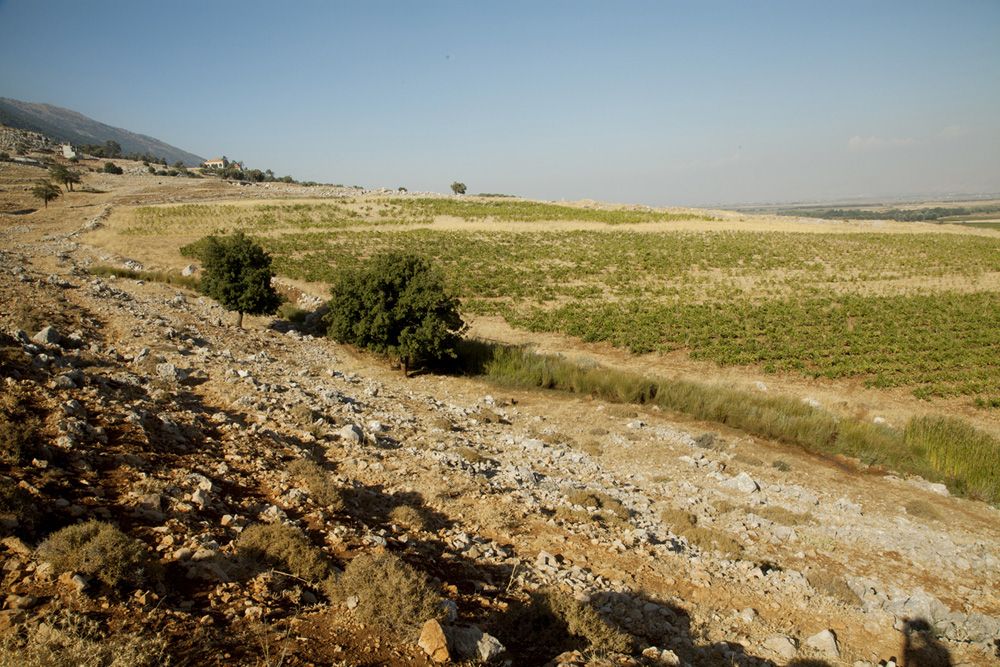
“This terroir does not need any intervention.” Some of the bush vine vineyards in Ammiq, Bekaa Valley
“You know I’ve been telling to my wife I prefer to have war than living in such conditions where you don’t know what’s going on. Living in the unknown is the worst thing. Business is being killed – we are on 20% now on what we should do. We are scared a bit because in three months we have the new harvest coming and our tanks are a bit full.”
Lebanon started Lockdown before the UK, closing schools first. Issa is allowed to be operating subject to a number of precautions – reduced working hours, social distancing, only able to use the car every other day, “Masks are like eyeglasses,” Issa says as he describes how he has 10 staff split between two winery buildings and 15 people on the vines now.
“I cannot hide my anxiety but we have to keep positive because we will need that positivity at the end of the road. We are taking positive pills every morning.”
One of those positives is that with imports now twice the price of what they were in October he can open up other markets.
“With the devaluation of the currency that is happening, the importers of wines in Lebanon will face some struggle in importing wines from France and Italy because they are paid for in dollars and all the wines and spirits – the prices will double in the coming months – and it will be our opportunity to excel and take bigger markets.”
Anyone meeting Faouzi Issa, as I did two years ago over lunch to launch his old vine Cinsault, would be hard pushed to call him negative. In fact his positivity is infectious, he is like one of those inflatable bounce back toys that you can never push over. As conversation moves onto the reality of running the winery during lockdown so he becomes more animated and his usual self.
“I have spent the last 25 days inside the house – talking to the walls, talking to the kids, never been like that in my whole life, so I have spent the same time with the kids now than that I have spent in the last two to three years. It is two months since I kissed anyone apart from my wife,” he laughs.
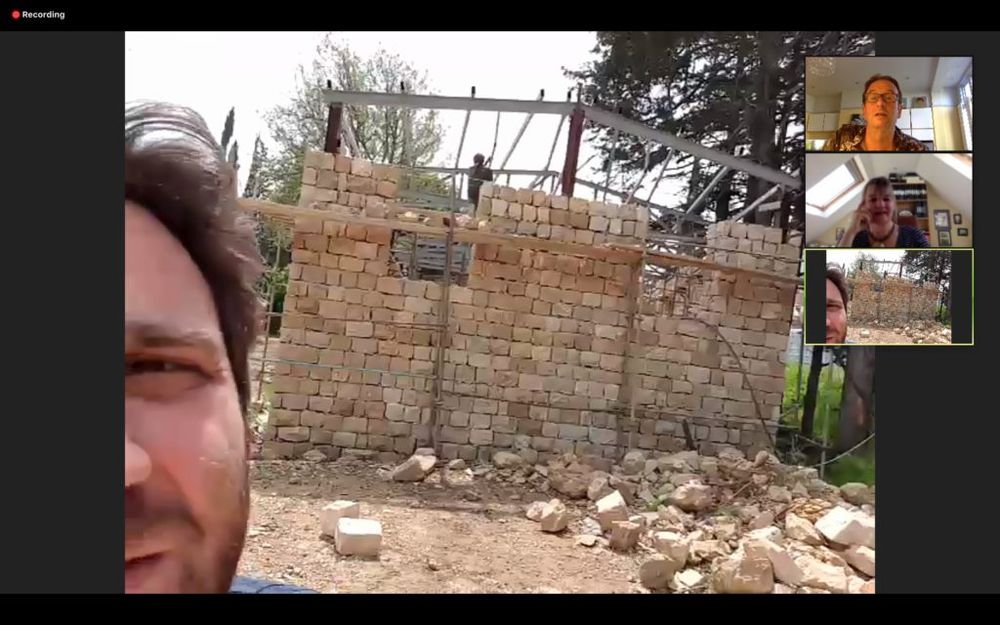
A race against time: finishing the handbuilt warehouse to store his excess wine
Picking up his phone he then shows us the warehouse he started building seven months ago made up of over 15,000 stones he has collected from his vineyards over the past three years. Work has just been allowed to restart and it is his solution to the excess wine he has, a store for the bottled wine from the full tanks, so that he can empty them before harvest begins.
Introducing his new, low intervention old vine Carignan
The purpose for the call is to talk through the launch of his new wine, a 100% old vine Carignan, that is the second wine in a series that will, hopefully, next take in a white wine, a 100% Obeidi, an indigenous grape that is currently used in Tourelles’ white blend.
The Carignan, like the Cinsault before it, is from a plot of old vines (50-plus years) that simply has to be vinified separately rather than put in the estate’s red blends. Both wines are expressive wines, that speak of the Lebanese terroir, the altitude, the climate – and both wines are made in an unpolished style, vinified with very little pumpover in unsealed concrete tanks, then bottled unfiltered and unfined except for an initial filtering through thistles and a bit of potato starch.
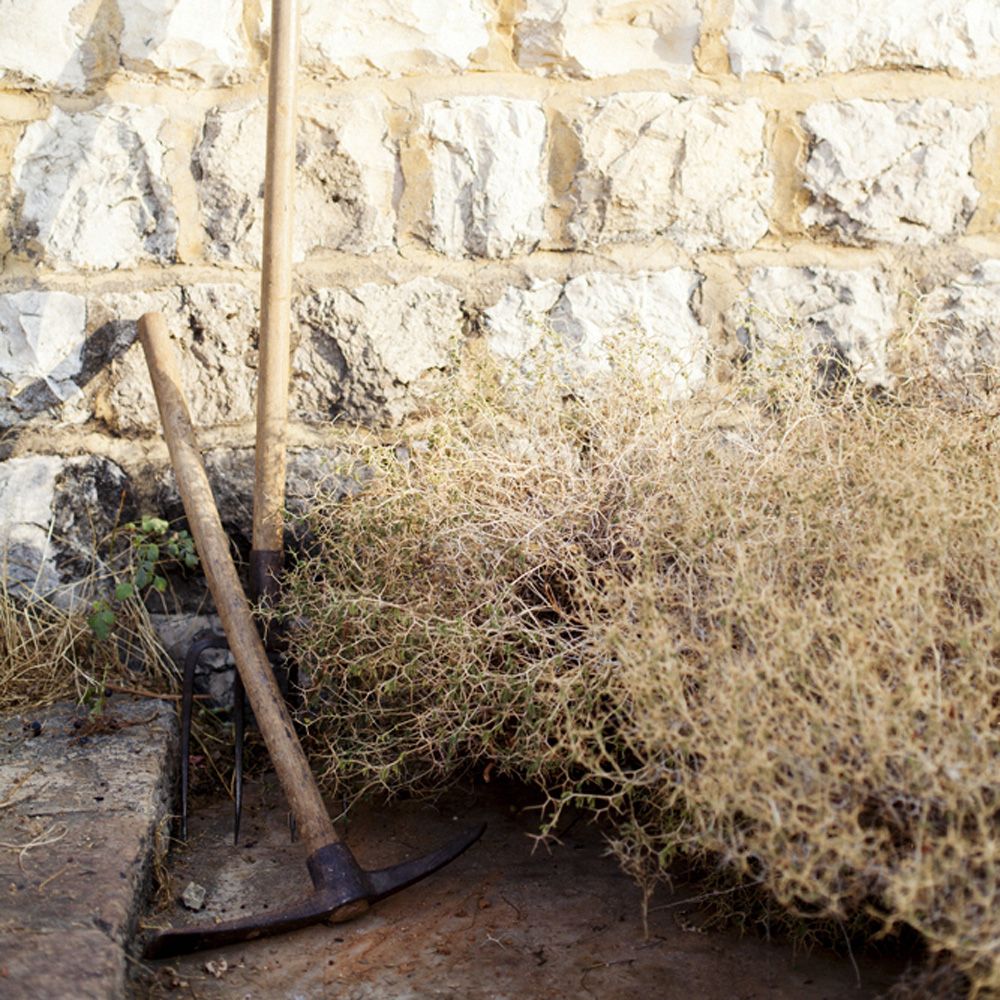
Mountain thistles that are used for the first filtration – helping to make the wine vegan
“There is an expression that we use where we say the more simple the more beauty you will find. After the success of the Cinsault we wanted to extend the range – we could use the same label and we didn’t take too long on it – it was out on the market in two weeks. It reminds people of the generosity of the Mediterranean wines, the Mediterranean structure, it is easy to be drunk, a wine that can last with good acidity, and has had minimal intervention.”
“When I first started making wine I was 26 and I did everything by the book. I didn’t want to put the whole winery at risk by doing things differently, but year after year this book is going into the garbage because they can give you some reflection but they cannot give you the courage, and I implemented another style of winemaking – reaching a point where the less we work the wine the more we give a good projection of the terroir, because this terroir does not need any intervention.”
“And this wine is a complete image of Lebanese terroir which is a lot of minerality, a lot of garrigue, earthy notes, lot of red stone fruits, raspberries and strawberries, at the same time it has a feeling on the palate that gives you the ability to drink more glasses, more glasses, more glasses.”
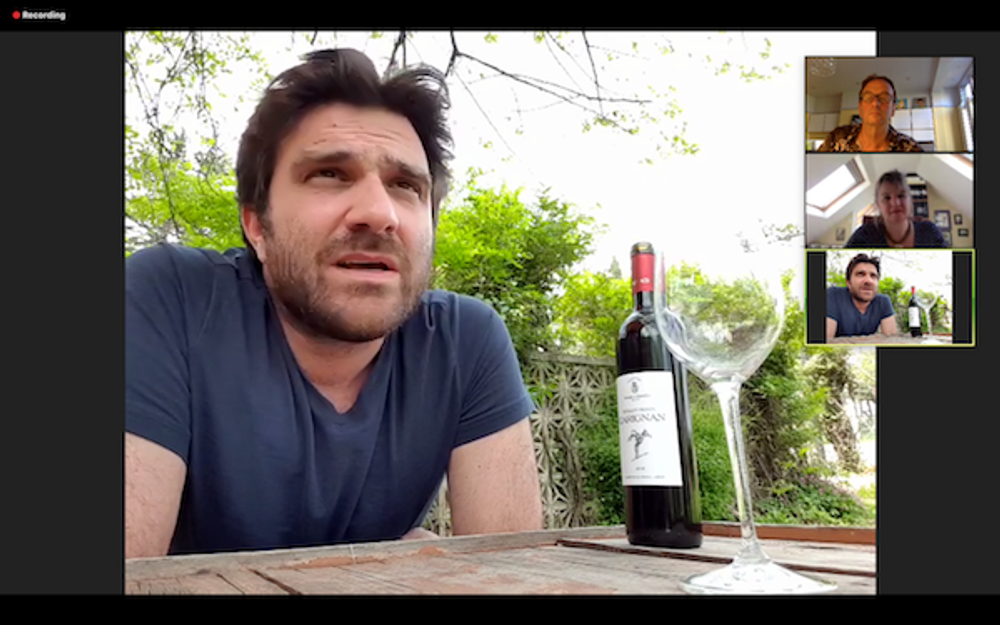
So is he making wine more like his grandparents than his parents’ generation?
“We both agree that the generation of our parents is the worst generation in all terms,” he laughs, “whether in cars, whether in watches, in wine, in politics, in pollution in everything. Going back to the roots is not rocket science.”
So how does Issa see the difference between the Cinsault and the Carignan?
“They are a couple the man is the Carignan and the woman is the Cinsault. The Cinsault is a little bit more soft and smooth, it’s round, it’s expressive, you get a lot of finesse in the wine, the Carignan is a more arguing bottle, it is more structured, it has more weight. Both wines come from the same style of wine, they look at the same region and come from the same winemaking style.”
As for the Lebanese wine scene, which has seen new wineries opening up tenfold in just 20 years (from 6-70 estates) Issa thinks that Covid-19 will slow its growth, although it will pick up again after.
“Lebanese wine is like a fillet mignon – it will always please people who like eating meat. You know Lebanese wines they have an amazing story and an amazing history, with a controversial situation now before Muslims, religion, Christians, Hezbollah, Saudi, Americans, Trump, Israel all of these things mixed. The food, the generosity, the weather, we have a kind of sexiness in the whole package of Lebanon. It is a piece of treasure that can really excel in good conditions.”
“I have a conspiracy theory – God is fair – he gave us the worst structure ever in Lebanon in terms of politicians, corruptions, money, laundry of the people, but he gave us the best weather with the best food, he gave Norway the best Royal Family and everything, of gas, so rich but 4-5 months in darkness,” and he is off again laughing like his positive pills have kicked in again.
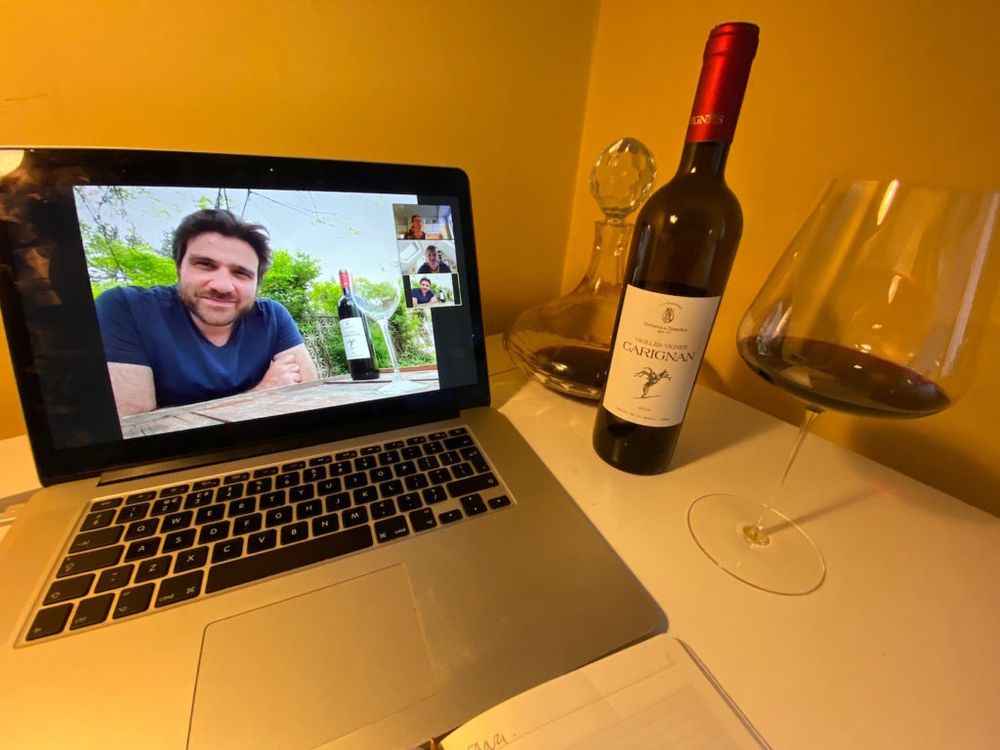
So what is the new wine tasting like?
Carignan, Vieilles Vignes, Domaine des Tourelles, 2018
There is plenty of restrained power in this. The colour is light ruby with purple edges; the nose and palate are alluring and so true to Lebanese terroir: aromas of raspberry, fresh fig, liquorice; the palate is medium bodied, full of freshness and layers of ripe fruit – cranberries, raspberries, white cherries – and it is no shrinking violet at 14% abv, but the acidity balances the wine beautifully giving the fruit a crispy edge and makes the finish clean and fresh with that dry stone texture you always get with vinification in unsealed concrete tanks.
We served it with and without food, it is a style of wine I like – honest, bags of personality and sensibly priced.
Boutinot imports the wine and it is already being sold by Borough Wines, Hennings and Woodwinters.
